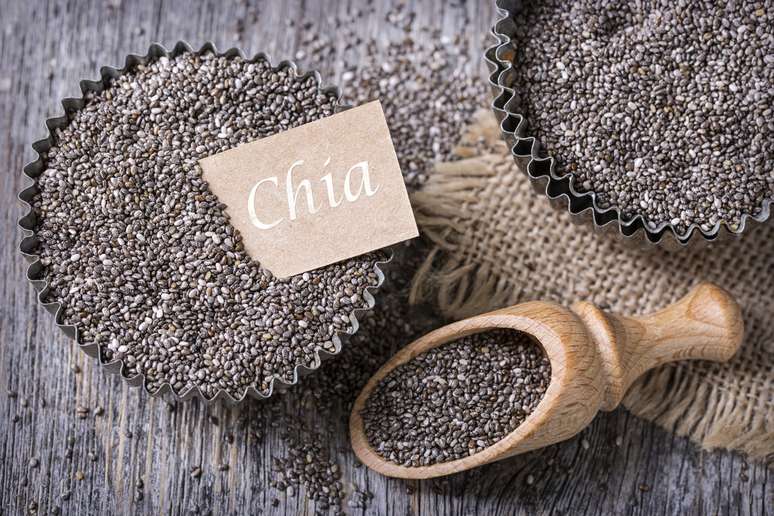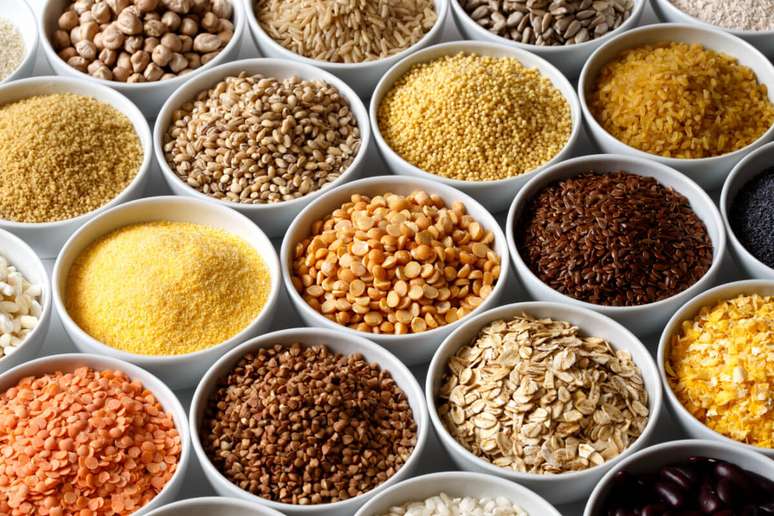These foods are rich in essential nutrients that play a vital role in the proper functioning of the body.
Including grains and seeds in your diet plays a crucial role in promoting overall health and well-being. “Both grains and seeds are rich in dietary fiber, vitamins and minerals, and the more whole grains they are, the better,” explains nutritionist Fernando Castro.
Therefore, by incorporating a variety of grains and seeds into your daily diet, you can significantly help promote long-term health and reduce the risk of many chronic diseases. So, below, check out some benefits of including grains and seeds in your diet!
1. Fiber improves digestive health
Whole grains and seeds are rich in fiber, which is essential for digestive health. They promote intestinal regularity, preventing constipation and contributing to a healthy digestive system. “They also serve as fuel for good colonization of healthy bacteria in the intestine,” adds nutritionist Fernando Castro.
2. Helps control weight
The presence of fiber in cereals and seeds promotes a sense of satiety, which helps weight control reducing appetite and preventing overeating. “Since they are very fibrous foods, they slow down the absorption of a meal, which is positive, since they reduce appetite and the release of hormones that make us gain weight,” adds Fernando Castro.
3. Nutritional integration
There are different types of cereals, such as beans, lentils, chickpeas, among others. Therefore, the more variety consumed, the better. “This promotes variation and complementarity of nutrients offered in each grain,” says Fernando Castro.

4. Quality proteins
Several grains, such as quinoa and amaranth, and seeds, such as chia and flax seeds, are protein sources high quality. According to Alessandra Luglio, nutritionist and coordinator of the nutrition department of the Brazilian Vegetarian Society, proteins perform essential physiological and metabolic functions, such as structural, transport, regulatory and enzymatic.
“They are responsible for the formation and maintenance of cell tissues, muscle synthesis, antibodies, enzymes, hormones, neurotransmitters, transport of substances throughout the body and are a source of energy,” he adds.
5. Seeds are rich in essential fatty acids
Seeds, like those of sizzle and pumpkin, are rich in omega 3 and omega 6 fatty acids, essential for cardiovascular health, reducing the risk of heart disease. “In addition, omega 3 helps regulate blood vessel pressure, as they increase blood fluidity, thus preventing the increase in blood pressure,” adds nutritionist Roseli Rossi.

5 tips for eating well before and after weight training
6. They have antioxidants
Many seeds, such as sunflower and sesame, are rich in antioxidants, which fight free radicals and help prevent cell damage.
7. Cereals are rich in essential minerals
Whole grains, like brown rice and quinoa, offer a wide range of minerals, including iron, magnesium, and zinc, which play crucial roles in many body functions.
Source: Terra
Ben Stock is a lifestyle journalist and author at Gossipify. He writes about topics such as health, wellness, travel, food and home decor. He provides practical advice and inspiration to improve well-being, keeps readers up to date with latest lifestyle news and trends, known for his engaging writing style, in-depth analysis and unique perspectives.









